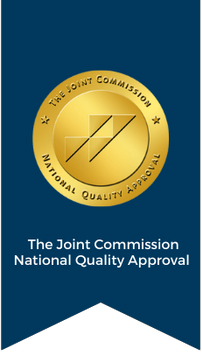Alcohol intake is considered normal in several parts of the globe. In events, it is served in celebration of a milestone or achievement. Some take it to feel more relaxed or commiserate our sorrows, while others see it as a coping mechanism. If you see alcohol as a way to deal with life’s difficulties, reliance will set in, and it can be problematic. Unfortunately, that is what many people are suffering from globally. This condition is called alcoholism.
When you become an alcoholic, your mental health will be in jeopardy. This substance is a depressant and can disrupt balance, reality, and thinking. The more you drink alcohol, the more likely you become depressed. The more you get depressed, the more you take alcohol to suppress the feeling. Alcohol and depression are closely linked, which is why alcoholism is difficult to stop. Many people know this, while others are oblivious to the fact.
California Wellness is an Orange County drug and alcohol rehab center. Contact us today to learn more about how we can help.
How Does Alcohol Impact the Brain?
Alcohol acts on the neurotransmitters in your brain. Neurotransmitters are chemicals that transmit nerve impulses across a synapse. Because of its powerful content, alcohol can alter the chemical balance, which affects your thoughts and behaviors.
It also acts on the part of the brain that is responsible for inhibition. That is why you feel more relaxed after taking it. Alcohol alters chemical balances in the brain, which is medically unhealthy. However, this effect wears off, but the consequences don’t. When it wears off, you are left with more anger and depression.
Because alcohol acts on the brain’s neurotransmitters, information processing becomes slow. It makes it harder to figure out your next action and its consequences. At this point, you could break an item, slam your head against the wall, or pick a fight with a harmless individual. To relieve these feelings of depression and anger, you will be coerced to drink more alcohol. At this point, dependence sets in.
How Does Alcohol Affect Mental Health?
If you’ll like to know the answer to the question ‘how does alcohol affect mental health,’ this section is for you. Drinking alcohol excessively upsets the body’s processes. As a result, it increases the risk of health problems like heart disease, cirrhosis, and high blood pressure. When you start dealing with these issues, your mental health becomes affected.
Research proves that people dependent on alcohol are more likely to have mental health problems. Alcohol fuels depression, anxiety, and suicide. As mentioned, the more depressed you are due to alcohol drinking, the higher the consumption level.
Anxious individuals who rely on alcohol can have a short-lived feeling of happiness. The person will likely drink more to prolong his happiness, but this happiness never happens. If you depend on alcohol to cope with your anxiety, you may become an alcoholic. Suicide may occur when you realize your attempts to be happy are futile.
Besides suicide, extreme levels of alcohol intake can cause psychosis – a serious mental illness that may cause the affected individual to experience hallucinations.
From the above, you can see how alcohol and anxiety are connected and how our chemical functions are impacted. You may ask, “what’s the required unit to qualify a person as an alcoholic? If you drink as much as 30 units per day, then you are an addict. You should get immediate help if you drink as much as this.
Alcohol is never a coping mechanism for anxiety and depression. If you are suffering from these, exercises, yoga, and meditation can help to an extent. Because alcohol increases anxiety and depression levels, exercise won’t be enough. You need an effective treatment plan to overcome the issues.
How to Find Mental Health and Alcohol Treatment Services
Alcohol is linked to mental health. Addicts with mental health problems can lose their sanity, friends, and work relationships. Opting for a treatment plan is the only option. Fortunately, we are here to help you overcome your addiction and mental health issues.
Mental health and alcohol treatment services centers are widespread in the country, but only a few are in Los Angeles. If you’re in Los Angeles and struggling with alcohol and mental health problems, California Wellness is here to help.
Our treatment programs are up-to-date, proven, and tailored to help you recover at your pace and without undue pressure. Our dedicated health staff and treatment goals ensure you return to normal life. We recommend various treatment options and allow you to choose your preferred method. When your treatment program ends, we continue the checkups and help you find support groups and communities to rebuild your wellness. Start your recovery journey by contacting our dual diagnosis treatment program in Orange County.


